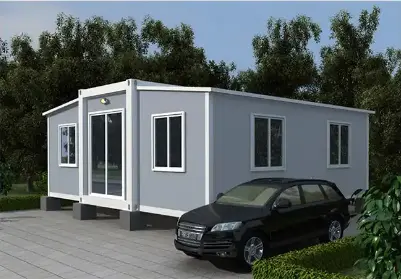The application of container houses in various countries
The application of container homes varies from country to country and depends on geographical, economic, and cultural factors.

Here is an overview of how different countries use container homes:
- United States: The United States pioneered container home construction with applications in residential, commercial, and industrial projects. Many cities employ container homes to address housing shortages, and they’re also prevalent in creative workspaces, cafes, hotels, and more.
- Canada: Canadian cities like Vancouver and Toronto use container homes to address housing supply issues. They also use them in some temporary or seasonal housing projects.
- Australia: Australia employs container homes for residential and commercial purposes, especially in urban and rural areas. Container homes also serve as temporary accommodations for miners and on various construction sites.
- European Countries: Various European countries, including the Netherlands and the UK, use container homes for innovative residential projects that emphasize sustainability and environmental friendliness.
- Asian Countries: People in Asian countries like China and India actively embrace container homes, especially in rapidly expanding urban areas and in response to the rising demand for temporary housing. This construction method also sees active use in rural areas to enhance housing conditions.
- African Countries: In some African nations, container homes are used to address housing crises and the need for refugee shelters. They play a crucial role in providing emergency housing solutions.
These homes extend beyond urban settings; they also significantly impact rural areas, providing improved housing conditions and contributing to thriving communities. As the global interest in eco-friendly construction grows, container homes stand out as a symbol of creative and sustainable architecture, offering a promising solution to various housing challenges.
In summary, the application of container houses enjoys worldwide adoption, serving not only residential purposes but also commercial, educational, healthcare, and humanitarian contexts. They offer a fast, cost-effective, and sustainable building option suitable for diverse environments and needs.
